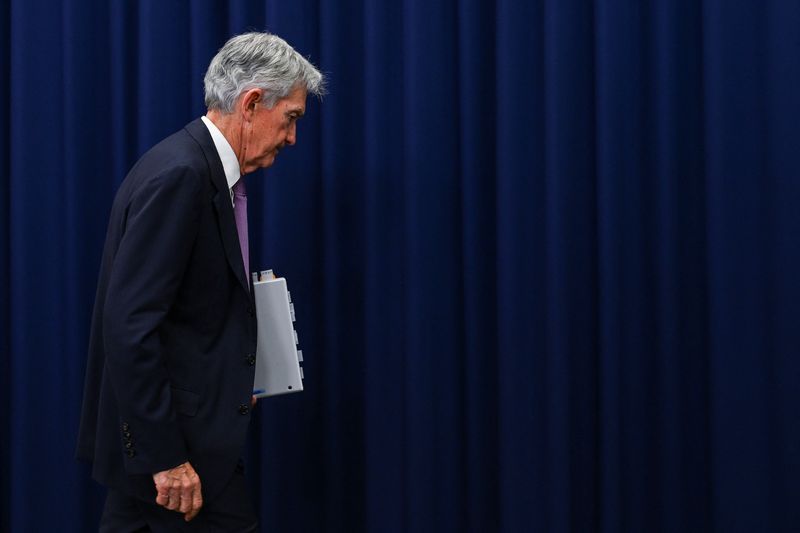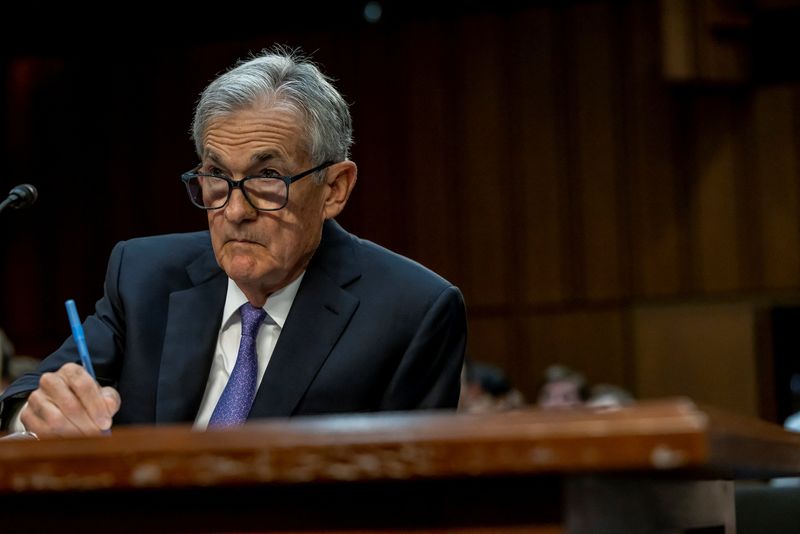(Reuters) - Federal Reserve Chair Jerome Powell on Thursday declined to say whether he would remain at the U.S. central bank as a board member after his term as chief expires in May 2026.
Powell, asked at an event in Dallas whether he would consider being the first Fed chair in more than seven decades to remain on the Fed board after no longer serving as its leader, said only that he is committed to serving out his term as chair.
"I'll certainly serve to the end ... of my chair term," Powell said. "And that's really all I've decided, and all I'm thinking about."
Powell's term as a Board of Governors member expires in January 2028. The last former Fed chair to continue serving beyond their term as its leader was Marriner Eccles, who ceased being the Fed's leader in January 1948, but continued on the board until July 1951.
The question follows a suggestion by one individual under consideration for a leading economic role in Donald Trump's incoming administration that the next president nominate and the Senate confirm a successor to Powell long before the current central bank chief's term expires.
The idea, floated last month by Scott Bessent, whom Trump is considering for Treasury secretary, would be to weaken Powell's authority for the remainder of his tenure while an already-approved successor advocated in the wings for monetary policy more palatable to Trump.
“You could do the earliest Fed nomination and create a shadow Fed chair,” Bessent told Barron’s. “And based on the concept of forward guidance, no one is really going to care what Jerome Powell has to say anymore.”
Bessent later told the Wall Street Journal he no longer thought the idea was worth pursuing.
Nonetheless, Trump's propensity for flouting norms and his open criticism of Powell, whom he appointed chair during his first term as president, has the Fed-watching world on high alert for more challenges to the U.S. central bank's independence after Trump becomes president for a second time in January.
Presidents typically do not wait for the current chair's term to expire before nominating a successor or renominating the incumbent, but the window is normally on the order of three to four months, a period largely consumed by the Senate confirmation process and not one that would allow the nominee to usurp authority from a current Fed chief.
Trump, for instance, nominated Powell, then a Fed governor, to take over as chair from Janet Yellen in November 2017, about three months before her term as chair was due to expire. President Joe Biden did the same in renominating Powell in November 2021.
The next Fed vacancy available for Trump to fill is the board seat held by Adriana Kugler, who was appointed by Biden and started at the Fed in September 2023. Her seat expires in January 2026.
On Thursday, she devoted a substantial portion of a speech she delivered in Uruguay to the subject of Fed independence.

"It has been widely recognized - and is a finding of economic research - that central bank independence is fundamental to achieving good policy and good economic outcomes," Kugler said.
Asked about Kugler's remarks at the beginning of his event in Dallas, Powell echoed her sentiment, adding that Fed independence is widely embraced by both parties in Congress.
